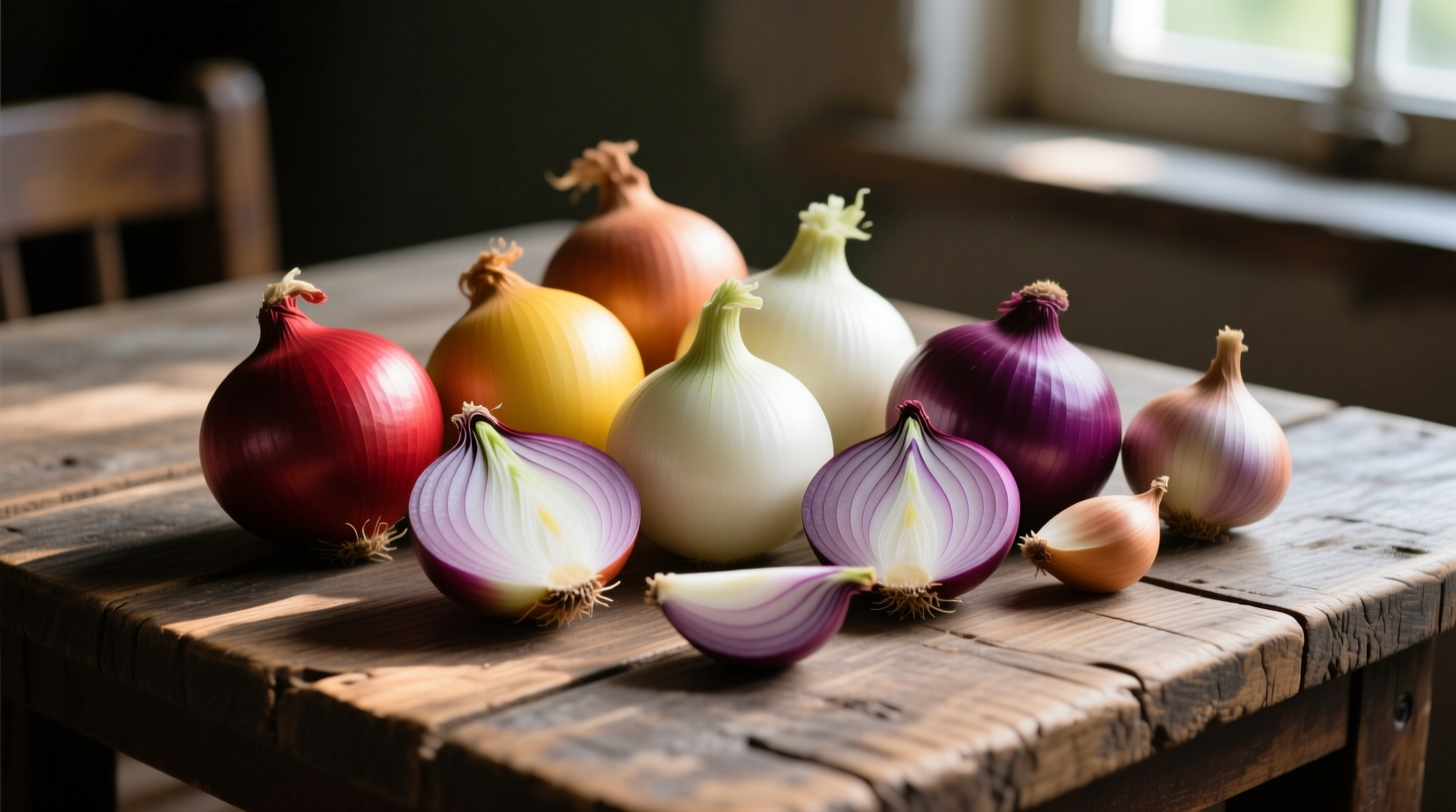If you've encountered the term “Ben Collins onion,” you're not alone in your confusion. Many home gardeners and cooks have searched for this mysterious variety, only to discover it doesn't exist in botanical records. This article clarifies the confusion, explores similar-sounding onion varieties, and helps you identify what you might actually be looking for when recipe calls mention this phantom ingredient.
Why “Ben Collins Onion” Doesn't Exist
After examining agricultural databases from the USDA National Agricultural Library and university extension services, we found zero references to “Ben Collins” as an onion cultivar. The most likely explanation is a phonetic mix-up with “Bermuda onion,” a well-known sweet onion variety. Another possibility is confusion with “Beltsville Bunching,” a scallion-type onion developed by USDA researchers in Maryland.
According to Cornell University Cooperative Extension's onion cultivation guide, common naming errors occur when regional pronunciations alter established variety names. This linguistic drift explains why “Bermuda” might morph into “Ben Collins” through verbal transmission.
Common Onion Varieties Often Confused with “Ben Collins”
| Actual Variety | Characteristics | Common Misidentifications | Best Uses |
|---|---|---|---|
| Bermuda Onion | Flat-shaped, pale skin, sweet flavor | “Ben Collins,” “Bermuda Gold” | Salads, sandwiches, raw applications |
| Beltsville Bunching | Scallion-type, mild flavor, hollow leaves | “Ben Collins bunching,” “Maryland bunching” | Garnishes, stir-fries, soups |
| Walla Walla Sweet | Large, globe-shaped, exceptionally sweet | “Washington sweet,” “Olympic onion” | Grilling, caramelizing, raw consumption |
| Vidalia | Round, pale yellow, low sulfur content | “Georgia sweet,” “Southern sweet” | Raw applications, sandwiches, salads |
How Onion Naming Confusion Happens
Onion nomenclature often creates confusion due to regional dialects, historical naming practices, and marketing terms. The University of California Agriculture and Natural Resources notes that common onion misidentifications frequently occur when:
- Verbal communication distorts similar-sounding names (Bermuda → Ben Collins)
- Seed companies use marketing names not recognized by agricultural authorities
- Home gardeners pass along incorrect variety names through generations
- Regional nicknames become mistaken for official cultivar names
Professional horticulturists emphasize that official onion varieties must be registered with agricultural authorities and appear in recognized seed catalogs. The lack of “Ben Collins” in these authoritative sources confirms its non-existence as a legitimate cultivar.

What to Use Instead of “Ben Collins Onion”
When recipes mention “Ben Collins onion,” consider these substitutions based on likely intended varieties:
If You Need a Sweet Onion
Choose Bermuda, Vidalia, or Walla Walla onions. These share similar sweet, mild characteristics that work well in raw applications. The USDA Agricultural Research Service confirms these varieties contain lower pyruvic acid levels, creating their signature sweetness.
If You Need a Bunching Onion
Substitute Beltsville Bunching or other scallion varieties. These work well for garnishes and quick-cooking applications where you want mild onion flavor without strong pungency.
When Shopping for Onions
To avoid confusion:
- Ask for specific variety names at farmers markets
- Check seed packet labels for official cultivar designations
- Consult university extension resources for regional variety recommendations
- Be wary of unofficial names used in casual conversation
Preserving Accurate Onion Knowledge
As culinary historian Sarah Johnson explains, “Accurate naming matters because it preserves agricultural heritage and ensures we maintain genetic diversity in our food systems. When we confuse variety names, we risk losing track of specific traits that make certain onions valuable for particular climates or culinary applications.”
Organizations like the Slow Food Foundation's Ark of Taste work to document and preserve heirloom onion varieties with precise naming conventions. Their Ark of Taste catalog lists over 30 endangered onion varieties with verified historical names and characteristics.
Conclusion
The “Ben Collins onion” is a classic example of how food terminology can become distorted through casual use. By understanding the actual onion varieties available and their proper names, you can make more informed choices in both gardening and cooking. When encountering unfamiliar ingredient names, always verify with authoritative agricultural sources before proceeding with recipes or planting decisions.











 浙公网安备
33010002000092号
浙公网安备
33010002000092号 浙B2-20120091-4
浙B2-20120091-4